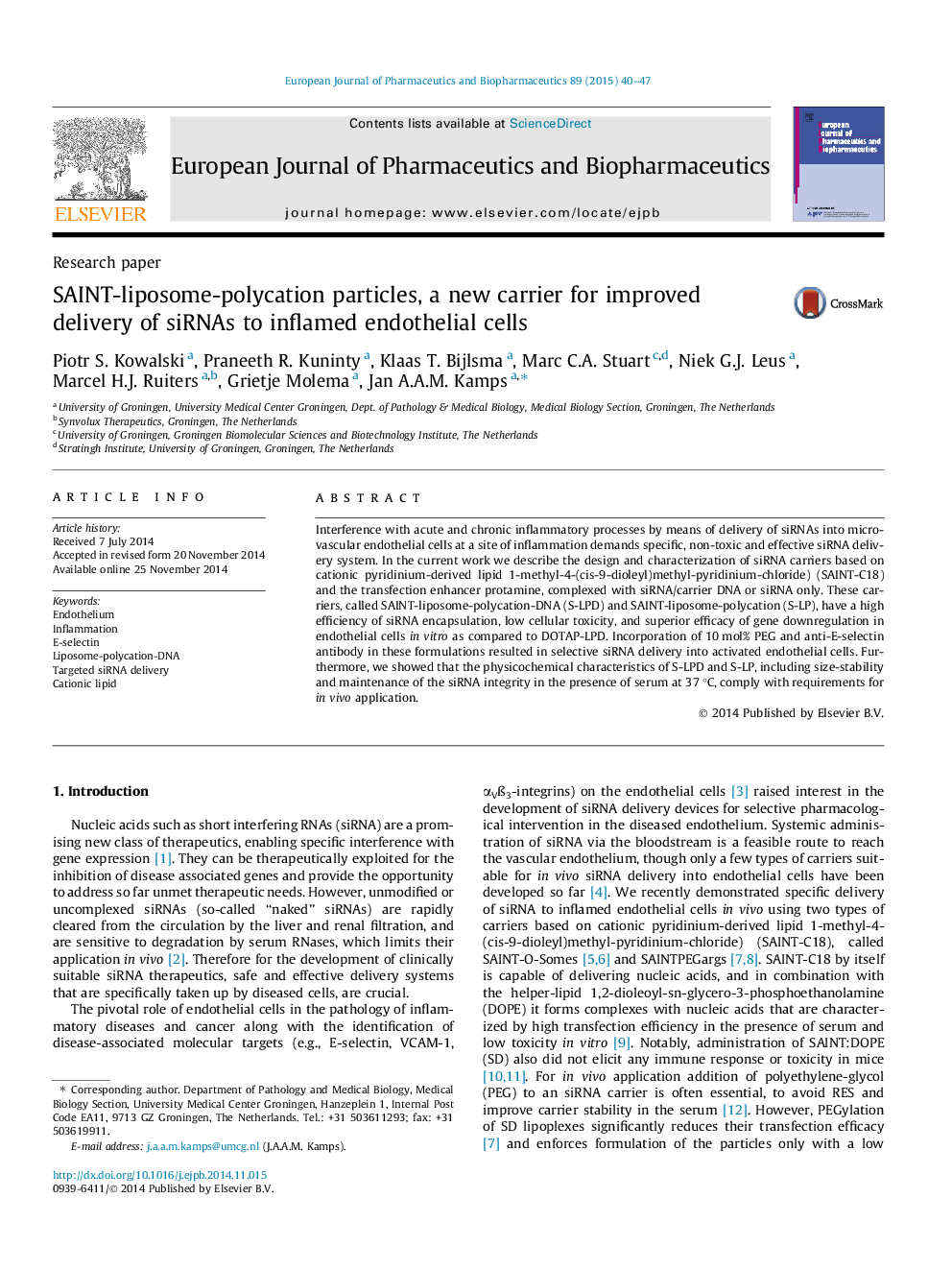| Article ID | Journal | Published Year | Pages | File Type |
|---|---|---|---|---|
| 2083423 | European Journal of Pharmaceutics and Biopharmaceutics | 2015 | 8 Pages |
•Design of new SAINT-C18 and protamine based carriers for siRNA delivery.•High siRNA encapsulation and low cellular toxicity.•Stability and siRNA integrity comply with requirements for in vivo application.•Efficient siRNA mediated gene downregulation in activated endothelial cells.
Interference with acute and chronic inflammatory processes by means of delivery of siRNAs into microvascular endothelial cells at a site of inflammation demands specific, non-toxic and effective siRNA delivery system. In the current work we describe the design and characterization of siRNA carriers based on cationic pyridinium-derived lipid 1-methyl-4-(cis-9-dioleyl)methyl-pyridinium-chloride) (SAINT-C18) and the transfection enhancer protamine, complexed with siRNA/carrier DNA or siRNA only. These carriers, called SAINT-liposome-polycation-DNA (S-LPD) and SAINT-liposome-polycation (S-LP), have a high efficiency of siRNA encapsulation, low cellular toxicity, and superior efficacy of gene downregulation in endothelial cells in vitro as compared to DOTAP-LPD. Incorporation of 10 mol% PEG and anti-E-selectin antibody in these formulations resulted in selective siRNA delivery into activated endothelial cells. Furthermore, we showed that the physicochemical characteristics of S-LPD and S-LP, including size-stability and maintenance of the siRNA integrity in the presence of serum at 37 °C, comply with requirements for in vivo application.
Graphical abstractFigure optionsDownload full-size imageDownload high-quality image (238 K)Download as PowerPoint slide
